
In this article highlighting Trade & Industry Development’s 2025 CiCi (Capital Investment, Community Impact) winners in the category for capital investment, you’ll find many superlatives: “the first of its kind,” “the biggest plant in the industry” and “the largest investment in the state.” You’ll also find something else: descriptions of unparalleled community coordination and “giving back” to the communities in which the projects are located. For while these rankings are based on capital investment amounts, they bring far more: jobs, business opportunities, improvements to roads and utilities, a broadening of education opportunities, the establishment of industrial clusters and advancements in sustainability, the treatment of diseases and the expansion of business and personal communications.
Collectively, these 15 projects that were announced in 2024 will bring nearly $63 billion in private corporate investment to the regions in which they are located, and will create and retain a total of 12,053 jobs.
None of these projects, of course, would have been possible without the hard work of community leaders, local and state economic developers, along with the visionaries at the companies themselves. Read more about how the transformation of a company’s location can make a difference in their communities.
Trade & Industry Development offers congratulations to all the winning projects, and we look forward to watching them unfold.
Eli Lilly and Company
Lebanon, Boone County, Indiana
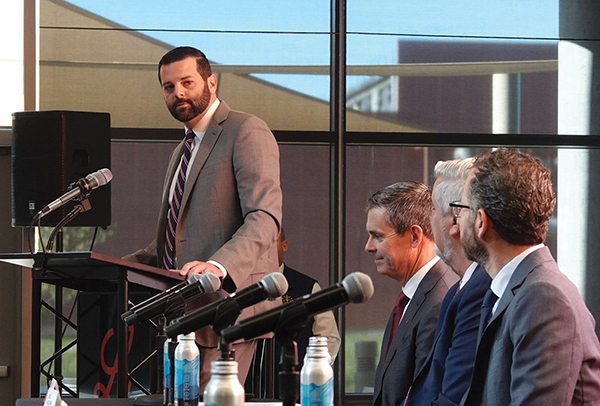
In early October 2024, Eli Lilly and Company announced plans to increase its investment at its LEAP Research and Innovation District in Lebanon, Indiana. The expansion, which will involve $4.5 billion in capital investment, is expected to bring Lilly’s total LEAP investment to more than $13 billion and add 239 jobs to the region. The expansion project will enable Lilly to increase its capacity to produce more innovative and next-generation therapies for clinical trials.
The expansion includes the establishment of the Lilly Medicine Foundry (LMF) at the LEAP Research and Innovation District. This facility will be a new center for drug development and advanced manufacturing and will allow Lilly to develop and manufacture a wide range of molecular therapies, including small molecules, biologics and nucleic acid therapies.
The increased investment from Lilly was orchestrated with the help of the Indiana Economic Development Corporation (IEDC) and the City of Lebanon. The project will be granted more than $446 million in Innovation Development benefits, as well as approximately $10 million in redevelopment tax credits. In addition, the project will be available for Indiana sales tax exemptions on manufacturing equipment with an estimated value of $25 million. Once completed, LMF is expected to add an additional 400 full-time jobs.
“Lilly’s continued investment in Indiana solidifies our state’s role as a hub for cutting-edge science and technology,” said Indiana Governor Eric J. Holcomb. “For nearly 150 years, Lilly has been committed to growing its roots and reach in Indiana, cultivating local talent and driving scientific advancements that benefit patients around the world.”
Amazon Web Services, Inc.
St. Joseph County, New Carlisle, Indiana

In April of 2024, Amazon Web Services (AWS), an Amazon.com Inc. company, announced the beginning of an ambitious project the state is calling a “generational boost” to its people and commerce. The company plans to invest $11 billion to build a data center campus in north central Indiana, creating at least 1,000 new jobs. The planned investment marks the largest capital investment announcement in Indiana’s history.
AWS offers cloud services to companies of all sizes in various vertical industries. Millions of customers, from startups to large enterprises to government agencies, use AWS to lower costs, become more agile and innovate faster. The new data centers will contain computer servers, data storage drives, networking equipment and other forms of technology infrastructure used to power cloud computing capabilities and generative artificial intelligence (AI) technologies.
From the State of Indiana, the project attracted data center sales tax exemptions for eligible capital investments over a 50-year term at an estimated value of $130.8 million including EDGE tax credits, Hoosier Business Investment tax credits, State Road Infrastructure support, training grants and more. St. Joseph County offered real and personal property tax abatement, infrastructure assistance, rate reductions incentives and more.
“The AWS announcement will be a generational boost to our local and regional economy, and we are excited for the opportunity to welcome the AWS team and workforce into our community,” said Carl Baxmeyer, President of the St. Joseph County Board of Commissioners. “This new data center campus to be built in the Indiana Enterprise Center over the next decade will be a major employment center for all of northern Indiana. This project announcement also shows our alignment with the state’s goal to create next level jobs that benefit all Hoosiers.”
Meta
Holly Ridge, Richland Parish, Louisiana

In early December 2024, Meta and Louisiana Economic Development (LED) announced that Meta plans to build the company’s largest data center in the world on former farmland in Richland Parish, a rural region in Northeast Louisiana.
LED estimates that the project will result in the creation of approximately 500 direct jobs and more than 1,000 indirect jobs in the Northeast Region. The company estimates that 5,000 construction workers will be employed at peak of construction on the 2,250-acre former Franklin Farm megasite that sits between the municipalities of Rayville and Delhi, about 30 miles east of Monroe.
The project is one of the largest private capital investments in the state’s history and is expected to spark new economic activity and investments throughout northeast Louisiana as multiple industries benefit from the billions of dollars invested. To power the data center, LED collaborated with electric utility Entergy to ensure new power plants will meet the needs of the data center and the region.
In terms of incentives, Meta is using is a sales tax exemption on data center equipment. These exemptions will be determined when the data center is built and the equipment is purchased. The project will also attract statutory exemptions such as ITEP, and these figures will be determined after construction. To support both the construction and eventual operation of the data center, Louisiana Community and Technical College System has committed $250,000 in Workforce Rapid Response funding to Delta Community College to develop programs and expand capacity. Delta will scale up its construction trades programs to meet the initial construction needs, and partner with peer institutions experienced in developing and delivering curricula for data center operations.
The company is expected to take advantage of a new Louisiana incentive program, established by Act 730 of the 2024 regular session, that offers qualifying projects a state and local sales and use tax rebate on the purchase or lease of data center equipment. Meta is also expected to participate in the state’s Quality Jobs program.
In addition, Meta has committed to investing more than $200 million in local infrastructure improvements, including roads and water systems. Overall, the project is expected to be completed by 2030.
“This project is an example of what Louisiana can accomplish when economic development partners play offense rather than waiting for good projects to come to them,” LED Secretary Susan B. Bourgeois said. “Louisiana has been actively positioning itself as a hub for AI innovation, with plans to support startups, grow a skilled workforce and shape forward-thinking policy. Meta’s historic investment is just the beginning of a bold strategy to drive economic growth through AI, expand and diversify the state’s tech sector, and prove to the world that when Louisiana says that we are ready to compete on the global stage, we mean business.”
DG Fuels
Moorhead, Clay County, Minnesota

In September 2024, the US Patent and Trademark Office granted a patent to DG Fuels, a Washington D.C.-based energy company, for its proprietary technology related to converting biomass into liquid synthetic fuels. In essence, the patent provides exclusive rights to DG Fuels to make, use, sell or import hydrocarbon-based fuels such as sustainable aviation fuel (SAF) according to their proprietary process.
In November 2024, in response to the patent, DG Fuels announced plans to invest $5 billion in an SAF plant in Clay County in Minnesota. The project is expected to bring 650 jobs to the area of Minnesota’s northwestern border with North Dakota. DG Fuels has estimated that its investment in Clay County will result in millions of dollars per year of on-farm income, and $50 billion of economic impact across the state.
The facility, which expects to be at full production in 2030, will convert agriculture and timber waste into jet fuel. At full operation, the plant will produce 193 million gallons of sustainable aviation fuel per year and take four years to construct. The projected capacity would represent nearly half of the fuel used at the state’s MSP International Airport.
Minnesota Governor Tim Walz signed a Sustainable Aviation Fuel tax credit into law in 2023 as an incentive to companies to invest in SAF and to encourage production or blending of SAF in Minnesota. The new refundable tax credit provides $1.50 per gallon of SAF produced or blended in Minnesota and sold for use in planes departing Minnesota airports.
The MN SAF Hub is the nation’s first large-scale hub committed to scaling production of sustainable aviation fuel to replace conventional jet fuel. DG Fuel’s investment is a notable milestone for the MN SAF Hub and marks the most significant commitment towards commercial-scale SAF production in the state.
The announcement reflects Minnesota’s value proposition to SAF producers, which includes abundant and diverse feedstocks, clean electricity, mature rail networks and strong state support. To that end, the hub recently launched a “Demand Consortium” with the goal of purchasing the first several million gallons of SAF each year, with purchases anticipated to start in the fourth quarter of 2025.
The MN SAF Hub is a coalition anchored by Bank of America, Delta Air Lines, Ecolab and Xcel Energy. They are joined by the State of Minnesota, the Metropolitan Airports Commission (which owns and operates MSP Airport), the University of Minnesota and others. The MN SAF Hub is led by the Greater MSP, a partnership of more than 1,000 leaders, including more than 300 businesses.
“Moorhead is a welcoming community and is growing in population and national influence,” said Moorhead Mayor Shelly Carlson. “With the largest shovel-ready industrial site in the state of Minnesota, we are excited and prepared to compete on the national stage for this economic development opportunity.”
Novo Nordisk
Clayton, Johnston County, North Carolina
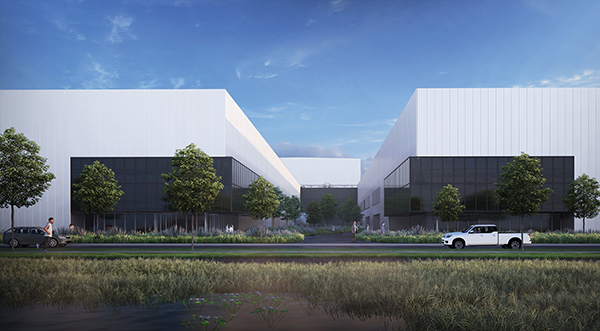
Pharmaceutical company Novo Nordisk’s presence in Johnston County dates to the mid-1990s. The company has played a key role in transforming a local economy long dependent on tobacco and other agricultural commodities.
In mid-2024, Novo Nordisk announced plans to invest $4.1 billion to build a second fill and finishing manufacturing site in Clayton, creating 1,000 new jobs in Johnston County. The new facility will expand Novo Nordisk’s current operations in Clayton and will grow the company’s ability to produce current and future injectable treatments for people with obesity and other serious chronic diseases. This announcement is one of the largest manufacturing investments in Novo Nordisk’s 101-year history.
Novo Nordisk’s expansion will add 1.4 million square feet of production space for aseptic manufacturing and finished production processes, doubling the combined square footage of all three of the company’s existing facilities in North Carolina. It will also add 1,000 new jobs, besides the nearly 2,500 Novo Nordisk employees already working in the region.
The facility aims to be LEED Gold certified, using state-of-the-art technology, roof-top solar panels and innovative water strategies, to deliver its products in an efficient and environmentally sustainable way.
The project has attracted a $125 million Economic Development Incentive Grant over a 12-year period. Customized training for future positions will be provided by the NC Community College System via Johnston Community College.
“Novo Nordisk’s decision to expand its manufacturing capability with a multi-billion-dollar investment is testament to North Carolina’s top-notch workforce and long history of being a leader in the life sciences and biopharmaceutical industries,” said Christopher Chung, CEO of the Economic Development Partnership of North Carolina. “This announcement is the largest life sciences investment in the state’s history, and we are proud that Novo Nordisk has confidence in the workforce, resources and partnerships North Carolina provides.”
Google
Moncks Corner, Dorchester County, South Carolina

In September of 2024, Google announced plans to grow its South Carolina footprint by establishing two new data center campuses in Dorchester County and expand its existing data center campus in Berkeley County. The company’s combined investment of $3.3 billion will create hundreds of new jobs across both counties.
This project is a testament to South Carolina’s growing role as a hub for technology and innovation. Google’s continued investment underscores the state’s competitive business environment, skilled workforce and robust infrastructure. The investment is expected to have a significant impact on the local economy, providing employment opportunities and contributing to increased household incomes.
Beyond job creation, the project is expected to contribute to the development of a robust digital infrastructure in South Carolina, supporting economic growth and innovation across various sectors. Google’s presence is likely to attract other technology companies to the region, creating a thriving tech ecosystem. The expansion was coordinated with help from the South Carolina Department of Commerce, Berkeley County, Dorchester County and the governor’s office.
Additionally, Google’s climate-conscious approach to cooling data centers prioritizes minimizing net climate impact and using natural resources responsibly. Beyond its operations, the company is committed to improving local watershed health where its offices and data centers are located and aims to replenish 120 percent of the water it consumes, on average, by 2030. Google will be contributing $600,000 to support The Nature Conservancy’s work in the Cooper River Watershed in an effort to help decrease evapotranspiration and retain water. Google has also contributed $250,000 to the Coastal Community Foundation’s Lowcountry Disaster Relief Fund.
Google’s new operations in Dorchester and Berkeley Counties represent a significant milestone for South Carolina’s economic development, demonstrating the state’s ability to attract and retain leading technology companies and foster a thriving innovation ecosystem.
“We are thrilled Google has once again chosen to invest in South Carolina by establishing two new data center campuses in our state and expanding existing operations,” said South Carolina Secretary of Commerce Harry M. Lightsey III. “The company’s significant investment of $3.3 billion will greatly benefit the Dorchester and Berkeley communities and beyond for years to come.”
Microsoft Corporation
La Porte, La Porte County, Indiana
In June of 2024, tech giant Microsoft announced plans to invest $1 billion to establish a new data center in northwest Indiana. The new facility, which will create up to 200 new jobs by the end of 2032 in La Porte, is expected to accelerate cloud computing infrastructure to support growth in technology and AI worldwide.
Microsoft, headquartered in Redmond, Washington, will construct a new 245,000-square-foot data center on 489 acres at the Radius Industrial Park in La Porte. The campus will help power the Microsoft Cloud and support the next-level digital transformation spurred by the widespread adoption of cloud computing and AI.
The La Porte facility will join the company’s worldwide network of cloud computing infrastructure of more than 60 Azure regions, more than 300 data centers, more than 280,000 kilometers of network and more than 190 edge sites.
The state’s Indiana Economic Development Corporation (IEDC) provided the project with state data center sales tax exemptions for eligible capital investments over a 35-year term at an estimated value of $144.9 million. The City of La Porte provided real and personal property tax abatement, and local utility NIPSCO provided incentives for rate reduction.
“Projects like this happen once in a lifetime, and their effects are felt forever,” said La Porte Mayor Tom Dermody. “What makes this even better is that we get to work with the talented and community-minded team at Microsoft. From the very beginning of this project, they have been committed and attentive to the needs of our community. We are incredibly excited to welcome them here and look forward to a strong collaboration long into the future.”
Google
Fort Wayne, Allen County, Indiana

In April of 2024, Google announce plans to establish a new $2 billion data center in Fort Wayne. The new data center will power the company’s artificial intelligence innovations and support the growing Google Cloud business. The new data center and operational support complex will be located near East Tillman Road and Adams Center Road on the southwest side of Fort Wayne. The facility will join a network of Google-owned and operated data centers all over the world that keep the internet humming 24/7 and help power digital services like Google Cloud, Workspace (which includes Gmail, Docs, Sheets and more), Search and Maps.The new facility is expected to create up to 200 new, competitive jobs, including facilities, data center technicians and support services, including security, catering and groundskeeping, in the coming years. Google will bring its Skilled Trades and Readiness (STAR) program to the Fort Wayne area in partnership with Ivy Tech Community College to help increase the entry-level pipeline in the skilled trades with a focus on underrepresented communities. These pre-employment programs offer paid training and networking opportunities to help participants move directly into employment on local construction projects.
The State of Indiana, through the Indiana Economic Development Corporation (IEDC), will provide Microsoft with data center sales tax exemptions for eligible capital investments over a 50-year term at an estimated value of $14 million. In addition, Greater Fort Wayne will provide long-term real and personal property tax abatement, and electric utilities AEP and Indiana Michigan Power will provide infrastructure assistance and rate reduction incentives.
“Indiana has made it a strategic priority to cultivate the economy of the future, and we’re already seeing the impact of our work thanks to the partnership of companies like Google,” said Governor Holcomb. “Not only is Google choosing Indiana to power its global AI and cloud infrastructure, but we’re thrilled to see the company already investing heavily in the northeast Indiana community. These initiatives will help skill up our Hoosier workforce, preparing residents for the jobs of the future, and at the same time, bring clean energy resources to the region, propelling continued growth in industrial sustainability.”
Micron
Manassas, Prince William County, Virginia
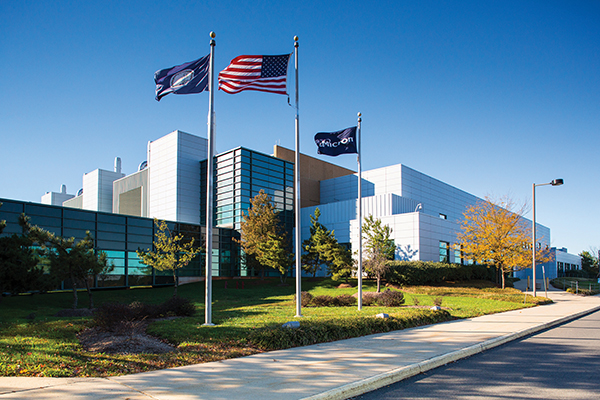
In late December 2024, Micron Technology, Inc., one of the world’s largest semiconductor companies, announced plans to invest up to $2.17 billion to expand its operation in Manassas, Virginia, creating 340 new jobs. This project will enable the modernization of Micron’s existing Manassas facility to produce DRAM memories and address future demand for domestic automotive, aerospace, defense and industrial markets.
Micron Technology has operated in Manassas for 22 years, establishing a strong track record of advanced manufacturing excellence in Virginia. This expansion is expected to enhance the facility’s semiconductor manufacturing capabilities, supporting the growing demand for memory and storage solutions across multiple industries.
Micron’s investments in domestic semiconductor manufacturing capabilities, supported by the bipartisan CHIPS Act and the incentives offered by the Commonwealth of Virginia and the City of Manassas, will help drive economic growth and ensure that the U.S. remains at the forefront of technological advancements.
Micron will be eligible to receive an MEI (Major Employment and Investment) Commission-approved special appropriation of up to $70 million based on an investment of more than $2.1 billion and the creation of 340 jobs, subject to approval by the Virginia General Assembly. In addition, support for Micron’s job creation will be provided through the Virginia Talent Accelerator Program. The program, created by the Virginia Economic Development Partnership (VEDP) in collaboration with higher education partners, accelerates new facility startups through the direct delivery of recruitment and training services that are fully customized to a company’s unique products, processes, equipment, standards and culture. All program services are provided at no cost to qualified new and expanding companies as an incentive for job creation.
“I am pleased the MEI Commission could collaborate with our federal, state and local partners to ensure Micron is committed to expanding its semiconductor operations in the Commonwealth,” said Major Employment and Investment Project Approval Commission Chair Senator Louise Lucas. “Micron has long been one of Virginia’s premier semiconductor facilities. It is exciting to see them continue to grow, and we thank Micron for its long-term commitment to the Commonwealth.”
Johnson & Johnson
Wilson, Wilson County, North Carolina

In early October 2024, healthcare giant Johnson & Johnson announced plans to create 420 jobs in Wilson County, North Carolina through the investment of more than $2 billion in a new pharmaceutical manufacturing campus for innovative biologics in the City of Wilson.
J&J’s project in North Carolina will be facilitated, in part, by a Job Development Investment Grant (JDIG) awarded to Janssen Biotech, Inc. (a subsidiary of J&J), which was approved by the state’s Economic Investment Committee. Over the course of the 12-year term of the grant, the project is expected to grow the state’s economy by approximately $2.3 billion. Using a formula that takes into account $1 billion of the company’s investment as well as the new tax revenues generated by new jobs, the JDIG agreement authorizes the potential reimbursement to the company of up to $13.6 million spread over 12 years. State payments will be made following performance verification that the company has met job creation and investment targets.
A performance-based grant of $1.5 million from the One North Carolina Fund will also help facilitate J&J’s new operation in North Carolina. The One NC Fund provides financial assistance to local governments to help attract economic investment and create jobs. Companies receive no money upfront and must meet job creation and capital investment targets to qualify for payment. All One NC grants require matching participation from local governments and any award is contingent upon that condition being met.
Although salaries will vary by position, the average annual wage is expected to be $108,823, which exceeds the Wilson County average of $52,619. The new jobs could create a potential payroll impact of more than $45.7 million for the region each year.
The project’s projected return on investment of public dollars is 262 percent, meaning for every dollar of potential cost to the state, the state receives $3.62 in state revenue. JDIG projects result in positive net tax revenue to the state treasury, even after taking into consideration the grant’s reimbursement payments to a given company.
“North Carolina has one of the largest biologics manufacturing workforces in the nation,” said NC Commerce Secretary Machelle Baker Sanders. “Economic and workforce development collaboration is critical to ensuring we have the foundation and business climate for innovators like Johnson & Johnson to succeed, and we are grateful for the partners that are helping us strengthen our life sciences reputation.”
Natron Energy, Inc.
Rocky Mount, Edgecombe County, North Carolina
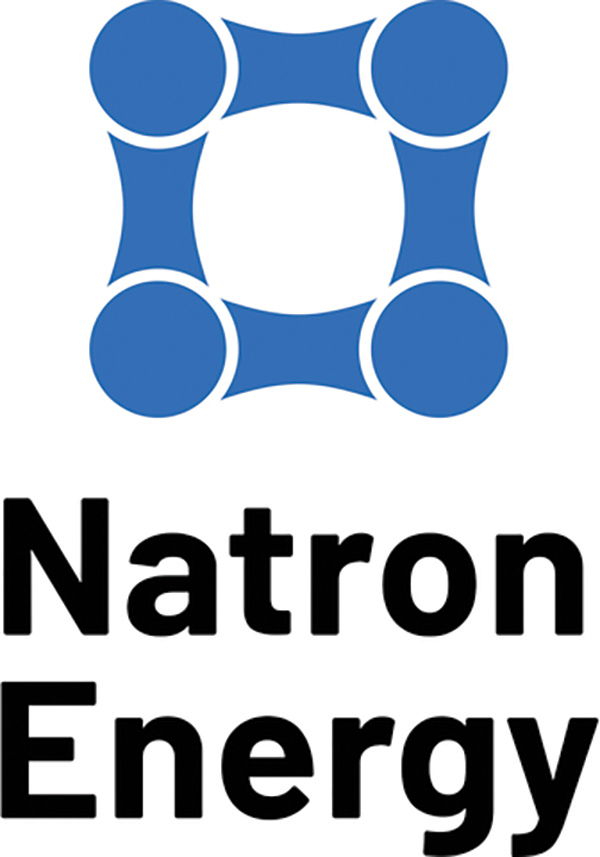
In August of 2024, Natron Energy, Inc., the only commercial manufacturer of sodium-ion batteries in the U.S., announced plans to invest $1.4 billion to establish a sodium-ion battery giga-factory at the Kingsboro CSX Select Megasite in Edgecombe County, North Carolina, creating more than 1,000 jobs. The new facility will add to the company’s Michigan-based production capabilities. Natron will receive close to $30 million from the North Carolina Megasite Readiness Program for onsite preparation of the Kingsboro Megasite.
In the 2022 legislative session, the North Carolina General Assembly tasked the Economic Development Partnership of North Carolina (EDPNC) with overseeing the Megasite Readiness Program, providing $1 million to identify and evaluate sites for preferred development and marketing. The General Assembly later amended the Megasite Readiness Program to include more opportunities for grant funding, appropriating $10 million for use in the 2023-24 fiscal year and $97.8 million for use in the 2024-25 fiscal year. Natron is the first recipient of Megasite Readiness Program funds.
The Kingsboro CSX Select Megasite is a 2,187-acre shovel-ready site located just outside of Rocky Mount in Edgecombe County. It is one of six megasites or sites that have 1,000 or more acres of contiguous land across North Carolina. The new giga-factory will be a first of its kind, becoming the first sodium-ion giga-factory in the company’s history and in the U.S. The factory will enable Natron to extend its customer base beyond the EV industry.
In addition to overseeing and administering Megasite Readiness Program funds, the EDPNC partnered with the North Carolina Department of Commerce on the project, offering support during the company’s decision-making process, as well as guiding the company through incentives.
Natron Energy’s project in the state, which will officially be executed through a newly formed subsidiary company, will be facilitated in part by a JDIG approved by the state’s Economic Investment Committee. Over the course of the 12-year term of the grant, the project is estimated to grow the state’s economy by $3.4 billion. Using a formula that takes into account the new tax revenues generated by the 1,062 new jobs and the capital investment, the JDIG agreement authorizes the potential reimbursement to the company of up to $21,747,000 spread over 12 years.
Although wages will vary depending on the position, the average salary for Natron’s new project will be $64,071, exceeding Edgecombe County’s average wage of $43,183. These positions will have an annual payroll impact of close to $77 million.
“In recent years, North Carolina has had considerable success in attracting large economic development projects, and the EDPNC was tasked to oversee the Megasite Readiness Program to better prepare our state to welcome more of that success,” said Christopher Chung, CEO of the EDPNC. “With the fund, the state can support the recruitment of large announcements like Natron, which will significantly positively impact Edgecombe County. We look forward to welcoming more projects to our current and future megasites.”
Microporous
Danville/Pittsylvania County, Virginia
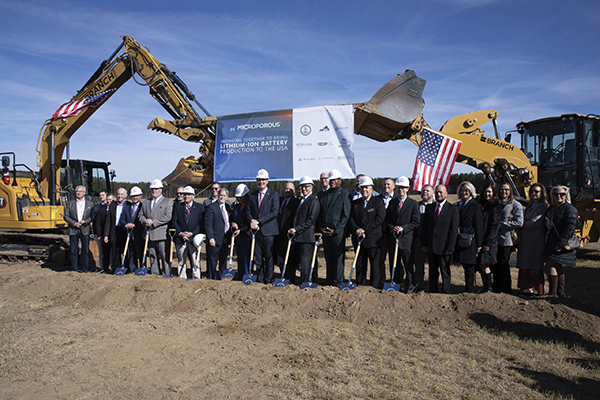
In November of 2024, Microporous, a leading manufacturer of battery separators, announced plans to invest $1.35 billion to establish a new manufacturing facility in Pittsylvania County, creating 2,015 new jobs. The company will develop two phases of the project on Lot 1 of the Southern Virginia Megasite, each facility phase being approximately 500,000 square feet. Lot 2 of the Megasite is anticipated to be under consideration for future expansion. Virginia successfully competed with North Carolina for the project, which is the largest economic development project in Southern Virginia history.
Microporous will be eligible to receive an MEI Commission-approved special appropriation of up to $60.6 million based on an investment of more than $1.3 billion and the creation of approximately 2,000 jobs. The Virginia Tobacco Region Revitalization Commission, which has invested nearly $35 million in the Southern Virginia Megasite since 2008, approved up to $25 million in low-interest financing to bring major natural gas service to the project. Additionally, the company is eligible to apply for state grants from the Port of Virginia.
Support for Microporous’ job creation will be provided through the Virginia Talent Accelerator Program. The program, created by the VEDP in collaboration with higher education partners, accelerates new facility startups through the direct delivery of recruitment and training services that are fully customized to a company’s unique products, processes, equipment, standards and culture. All program services are provided at no cost to qualified new and expanding companies as an incentive for job creation.
“This announcement of the first tenant in the Southern Virginia Megasite represents years of collaboration, hard work and determination between Pittsylvania County, the City of Danville, our state representatives and regional partners,” said Tunstall District Supervisor and Chair of the Danville-Pittsylvania County Regional Industrial Facility Authority Vic Ingram. “A U.S.-headquartered company, Microporous will bring more than 2,000 high paying, highly skilled jobs to Pittsylvania County and the entire Southside region, providing a substantial boost to the economy.”
Eastman Chemical Company
Longview, Harrison County, Texas
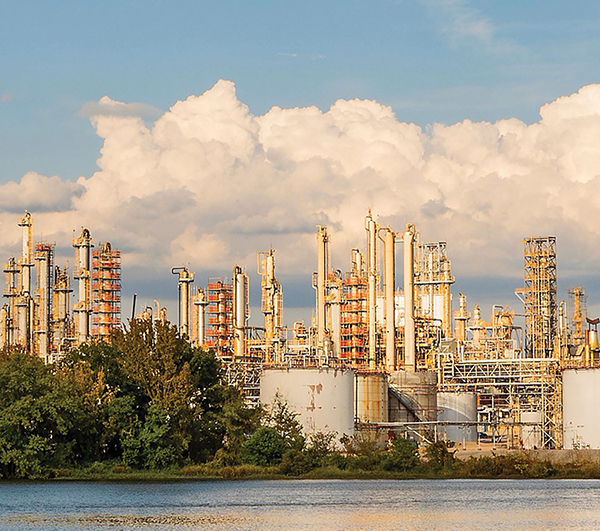
Eastman Chemical Company produces and recycles specialty materials found in everyday items globally, like eyewear, cosmetics packaging, medical equipment, textiles, films, coatings and more. Eastman is enabling the potential for infinite use of materials by keeping valuable molecules in production for a material-to-material high-yield loop.
After a competitive site selection process, the company chose Longview for its second U.S. molecular recycling project, a polyethylene terephthalate (PET) recycling decarbonization facility. With an existing campus in Longview, the company is expanding operations in the area due to synergies with existing infrastructure and operations, favorable energy supply and footprint and access to the western and central U.S. Longview allows multiple access points to feedstock, as it is located within 300 miles of four of the 11 most populated cities in the country and several U.S. material recovery facilities.
The new investment includes operations that will prepare mixed plastic waste for processing. Eastman’s next-generation molecular recycling unit will depolymerize waste and a polymer facility will create virgin-quality materials for packaging and textiles. The Longview molecular recycling facility will have the capacity to recycle approximately 110,000 metric tonnes of hard-to-recycle plastic waste. With PepsiCo as an early adopter committed to significant offtake from the plant, the project aims to accelerate the decarbonization of the consumer packaging industry.
Eastman was one of 33 companies tapped by the U.S. Department of Energy (DOE) to negotiate for up to $375 million in Bipartisan Infrastructure Law and Inflation Reduction Act funding as part of the Industrial Demonstrations Program (IDP). In addition to funds from the DOE, Eastman was awarded a Texas Enterprise Fund (TEF) grant of $2,040,000. TEF awards “deal-closing” grants to companies considering a new project for which one Texas site is competing with other out-of-state sites. Approximately $68 million was also awarded to Eastman through other various state and local tax incentives. The project is expected to create $1.2 billion in capital investment.
The additional manufacturing facility is expected to create more than 200 new jobs. Eastman currently employs more than 1,500 team members in Longview.
“Eastman is a longstanding institution in Longview, Texas, and we are more than honored that they have chosen the Longview site for their newest expansion project,” said President and CEO of Longview Economic Development Corporation Wayne Mansfield. “Nothing gives us more pride than when a legacy industry recognizes the assets of our workforce, our infrastructure and our overall business climate by choosing to make new investments in our community. The confidence Eastman has in our region is revered, and our partnership will continue to grow to new heights as they integrate the circular economy into the heart of Longview.”
FUJIFILM Diosynth Biotechnologies North Carolina, Inc.
Holly Springs, Wake County, North Carolina

In April of 2021, FUJIFILM Diosynth Biotechnologies North Carolina, Inc. announced plans to invest $1.2 billion to expand its biopharmaceutical manufacturing facility in Holly Springs, North Carolina, creating 680 new jobs in Wake County. Initial investments of the FUJIFILM’s Holly Springs operation included $2 billion in 2021, making it the largest end-to-end biopharmaceutical manufacturing facility in North America.
FUJIFILM Diosynth Biotechnologies’ expansion will include an additional large-scale monoclonal antibody drug substance manufacturing capacity that will support the company’s growing biologics contract development and manufacturing organization (CDMO) business. The project will also include two additional drug substance manufacturing buildings, a shared headblock building with administrative space, as well as expansions of utilities, lab and warehouse buildings currently under construction. The average salary for new positions at FUJIFILM Diosynth Biotechnologies will be $109,923, which is 46 percent higher than Wake County’s average wage of $74,866.
FUJIFILM Diosynth Biotechnologies’ project in North Carolina will be facilitated, in part, by a JDIG approved by the state’s Economic Investment Committee. Over the course of the 12-year term of the grant, the project is estimated to grow the state’s economy by $4.7 billion. Using a formula that takes into account the new tax revenues generated by the new jobs, the JDIG agreement authorizes the potential reimbursement to the company of up to $14,989,500 spread over 12 years. State payments occur following performance verification by the departments of Commerce and Revenue that the company has met its incremental job creation and investment targets.
The project’s projected return on investment of public dollars is 298 percent, meaning for every dollar of potential cost to the state, the state receives $3.98 in state revenue. JDIG projects result in positive net tax revenue to the state treasury, even after taking into consideration the grant’s reimbursement payments to a given company.
FUJIFILM Diosynth Biotechnologies’ JDIG agreement could also move as much as $4,996,500 into a fund that helps rural communities across the state attract business. When companies select a site located in a Tier 3 county such as Wake County, their JDIG agreements move some of the new tax revenue into the state’s Industrial Development Fund – Utility Account. Local communities in more economically challenged areas of the state use grants from the Utility Account to build public infrastructure projects, which can improve a community’s ability to attract companies to their regions.
“North Carolina is known worldwide as a biotechnology hub thanks to the continued investment from companies like FUJIFILM,” said Christopher Chung, CEO of the Economic Development Partnership of North Carolina. “Our robust infrastructure, top-notch engineering talent and partnerships with entities like NC State University and the North Carolina Biotechnology Center provide support for innovative companies like FUJIFILM to continue to grow.”
Boeing
North Charleston, Charleston County, South Carolina

In late 2024, aerospace giant Boeing announced that it will be investing more than $1 billion to expand its 787 Dreamliner production in South Carolina, creating 500 new high-skilled jobs. The expansion solidifies the state’s position as a leader in the aerospace industry and reflects Boeing’s commitment to its South Carolina operations.
This project is noteworthy for several reasons. Firstly, the $1 billion investment represents a substantial economic infusion into the state. Secondly, the creation of 500 high-quality jobs will have a significant impact on the local economy and workforce. The expansion is expected to have a ripple effect throughout the area, stimulating demand for goods and services from local businesses, leading to job creation in other sectors.
Boeing’s commitment to South Carolina signifies more than just job creation; it represents a critical commitment to the long-term success of the 787 Dreamliner program itself. The new investment will allow Boeing to increase production rates to meet growing global demand for the 787 Dreamliner and maintain its competitive edge in the global aerospace market.
“The legacy Boeing has built in South Carolina is truly something worth celebrating, and we are thrilled the company is continuing to invest in our state,” said Secretary of Commerce Harry M. Lightsey III. “Congratulations to Boeing and Charleston County on this substantial investment of $1 billion and the new opportunities it will create in the Lowcountry.” T&ID
Related Agencies
- Greater Indianapolis Foreign Trade Zone/INzone
- Louisiana Economic Development
- Johnston County Economic Development
- Dorchester County Economic Development, SC
- Virginia's Growth Alliance
- Port of Virginia
- Wilson Economic Development
- Economic Development Partnership of North Carolina
- Pittsylvania Economic Development
- Texas Economic Development Corporation
- Wake County Economic Development
- Charleston County Economic Development

